Health Science: A Comprehensive Guide for Beginners
Health science is a very interesting and fast changing field that is related to human health and every part of the healthcare system. At the initial level, health science is a field that combines biology, medicine, public health and social science to help solve real life problems. Its main goal is to give students and professionals the skills and knowledge they need to solve modern health challenges.
People often think that health science is only for becoming a doctor or nurse, but the truth is that there are many career options available in this field. Such as understanding disease patterns in a city or community, designing new medical tools, managing hospitals well or educating people about health, health science people work at every level so that everyone’s health can improve and the healthcare system can become strong.
Core Areas of Health Science
Human Biology and Anatomy
The foundation of health science is based on understanding the human body so well that basic treatment and diagnosis will be possible. Health science students study topics such as human anatomy, physiology, nutrition, epidemiology, healthcare policy and ethics so that they can build a strong learing base. These subjects are important to one who works with patients or contributes to research and health policies.
The National Library of Medicine is the world’s largest biomedical library where students and healthcare workers can access detailed up to date knowledge about any topic.
Disease Prevention and Public Health
A core part of health science is preventing diseases before they spread which improves overall public health. Epidemiology is a field that studies the causes spread and effects of diseases helping experts understand risk factors. They then develop prevention strategies such as vaccine campaigns or awareness drives. During COVID-19 everyone has seen how important such experts are.
Centers for Disease Control and Prevention (CDC) is a trusted source that gives health professionals tools and correct information to understand and fight diseases.
Healthcare Technology and Innovation
The role of technology has become the most exciting and powerful in today’s healthcare system, which was not possible earlier. Artificial Intelligence(AI). AI now identifies diseases in advance by analyzing data and also personalizes treatments. With the help of telemedicine people can consult their doctors from home even if they are in a remote area. Nowadays due to technology and healthcare has become fast smart and accessible for everyone.
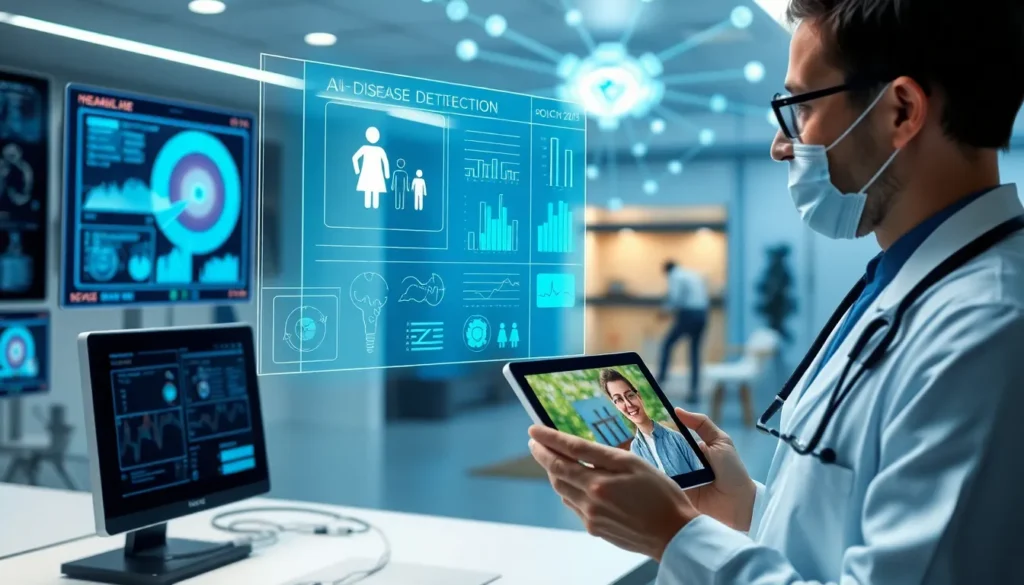
The Journal of Medical Internet Research (JMIR) is a popular source where you get new updates and research on digital medicine, AI and health tech which is very useful.
Research and Data Analysis
Research plays an important role in health science whose main aim is to understand new diseases and develop better treatments for them. Professionals do studies and data analysis to understand the effectiveness of health programs and public response. Health researchers do not always work directly with patients, but their work indirectly improves everyone’s health.
PubMed is a trusted and large platform where you can find more than 38 million research papers. It is very helpful for students and professionals.
Real World Applications and Examples
Vaccine Development and Disease Control
The biggest and most impactful story of health science is vaccine development which has improved health all over the world. The first vaccine for smallpox was made in (1796) Edward Jenner after which this disease was completely eradicated. This is proof that with the right research and knowledge we can solve big problems.
Even today health science has a very important role in vaccine development. With the help of data science scientists are making quick and accurate vaccines because they have the option of more and faster data analysis which due to decision making has also become better.
Digital Health and Telemedicine
The biggest change in healthcare during COVID-19 is that people can get treatment without going to hospitals and this has been possible through telemedicine and digital health tools. Now patients can consult doctors via video call or apps which provides both convenience and safety.
It is being used in many places:
- Treatment of chronic illnesses Monitoring chronic illnesses such as sugar or BP at home
- Mental health management Taking online therapy sessions for mental health support
- Remote patient monitoring Remote check ups and tracking after surgery or in long illness
The World Health Organization (WHO) provides many tools and guidelines in this field that are useful for health workers at every level and countries.
Artificial Intelligence in Diagnostics
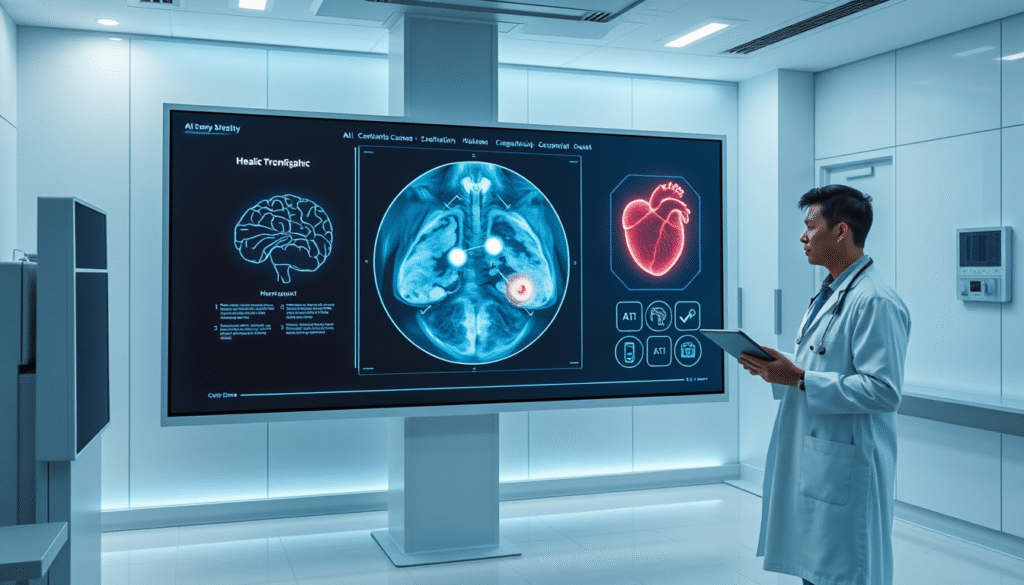
The use of AI in healthcare is showing that the technology is making diagnosis faster and more accurate. AI can detect diseases quickly such as heart problems or cancer before symptoms appear. For example: breast cancer screening tools using AI scan mammogram images and catch early stage tumors that doctors sometimes miss.
The National Institutes of Health (NIH) invests more than $32 billion each year in biomedical research which includes the creation of AI algorithms such as tools to find the right volunteers for clinical trials or AI systems that make diagnoses better.
Public Health Campaigns and Education
Health science experts create and run public health campaigns. Community health educators work with schools, government offices, and NGOs to develop health programs that meet the health needs of local people. These are very effective:
- Where tobacco control programs are strong, every $1 invested can save $55 because treatment for diseases caused by smoking is avoided.
- The National Diabetes Prevention Program costs just $500 per person, while patients with type 2 diabetes can cost up to $9,600 per year.
The CDC Foundation also provides tools and support for health education and community programs.
Career Opportunities in Health Science
Clinical and Patient Care Roles
The health science field offers many clinical jobs where professionals work directly with patients. Some top roles including:
- Physician Assistant: Works under a doctor, examines patients, and diagnoses them. A master’s degree and license are required for this.
- Diagnostic Medical Sonographers: Detects problems inside the body with imaging tools. Usually an associate degree or certificate is enough.
- Respiratory Therapist: Treats people with breathing problems, and handles equipment.
Non-Clinical Healthcare Roles
Health science students can also go to jobs that do not involve direct patient care but have an important role in the healthcare system:
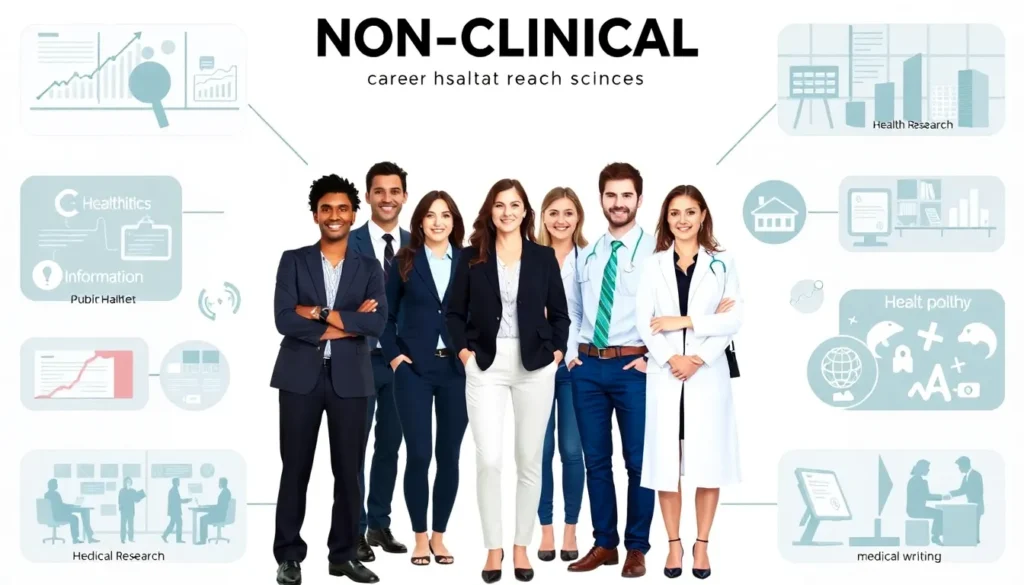
- Healthcare Administrator: Manages a hospital or clinic, makes policies, and oversees daily operations.
- Health Educator: Creates health awareness and disease prevention programs.
- Medical Laboratory Technician: Helps doctors in diagnosis by testing samples such as blood and urine.
- Epidemiologist: Studies the pattern of disease so that its spread can be controlled.
The Rural Health Education Foundation says that health education gives people the tools and knowledge to live a healthy life.
Research and Academic Positions
For students who are interested in research or science field research jobs in health science are best:
- Medical Scientist: Conducts research to find new health treatments and make healthcare better.
- Clinical Research Associate: Manages clinical trials and ensures that all rules are followed.
- Academic Researcher: Along with research they also teach in universities.
The Indian Council of Medical Research (ICMR) is the top body in India that promotes biomedical research. It also shows the global opportunities of health science research.
Educational Pathways and Requirements
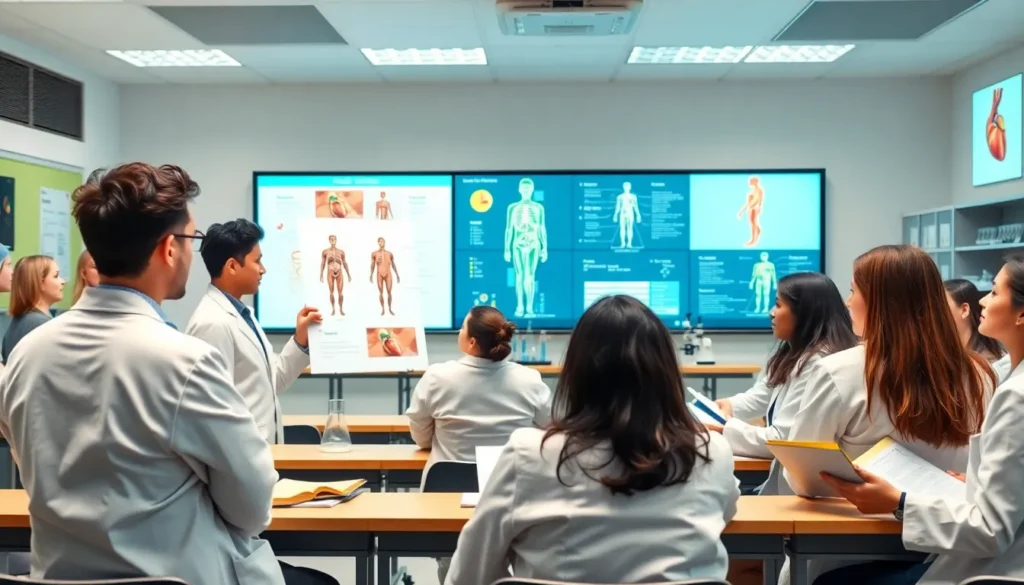
Undergraduate Education
For a bachelor’s course in health science the student must have passed 12th with Physics, Chemistry, Biology and English. This course is of 3–4 years which includes lectures, labs, internships and projects.
Specialized Training and Certifications
Each career path has a different education level. Some are short-term courses, some are high-level degrees:
- Certificate programs are completed in less than 1 year, for basic entry-level jobs.
- Associate degrees 2–3 years of course, which leads to technical jobs like lab technician.
- Bachelor’s degrees 4 years of full health science education.
- Advanced degrees Master’s and PhD are required for high-level roles and research jobs.
The National Commission for Health Education Credentialing (NCHEC) also offers certifications like CHES (Certified Health Education Specialist) and MCHES (Master Certified Health Education Specialist) which boost career.
Skills Development
Health science education not only teaches technical knowledge, but also develops soft skills:
- Technical skills: Basic understanding of human body parts (anatomy), process of diseases, how research takes place and healthcare system.
- Critical thinking: Understanding complex health problems and thinking of smart solutions for them.
- Communication: Skill of talking clearly and respectfully with doctors, patients and public.
- Technology proficiency: Must know how to use health related software digital records (EHR) and new medical tools.
Khan Academy’s Health and Medicine course provides free resources that explain human body and health topics to students in an easy way especially for those who want to enter a health career.
The Impact of Health Science on Society
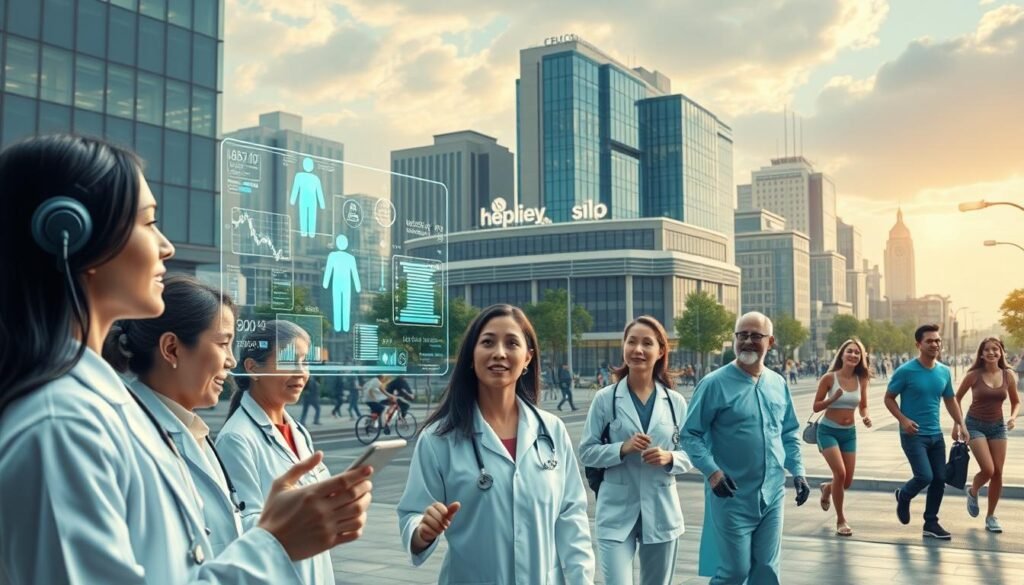
Economic Benefits
Health science is very helpful for the economy:
- Reducing healthcare costs because preventive care catches disease early.
- Creating employment opportunities in the healthcare field because this field is growing fast.
- Supporting healthcare innovation new medical tools and systems that move the economy forward.
Healthcare jobs are expected to grow by 13% to 15% in the next 10 years which means health science careers are secure and will grow.
Social and Community Impact
Health science professionals help people who have limited access to healthcare. These people work together with the community to find the root causes of health problems and work on them. This work mainly focuses on these things education, jobs, healthcare access and safe environment.
The WHO Eastern Mediterranean Region says that health education is very important such as healthy food, exercise, staying away from smoking, mental health, HIV prevention and raising awareness on safety topics.
Global Health Leadership
The impact of health science is not only local but also global. India’s digital healthcare projects have made India a health tech leader. This shows that health science is a strong tool for collaboration and knowledge sharing at the global level.
The World Health Organization’s Research for Health division ensures that research improves the health of people around the world, and the focus is in the right direction.
Current Trends and Future Directions
Digital Health Revolution
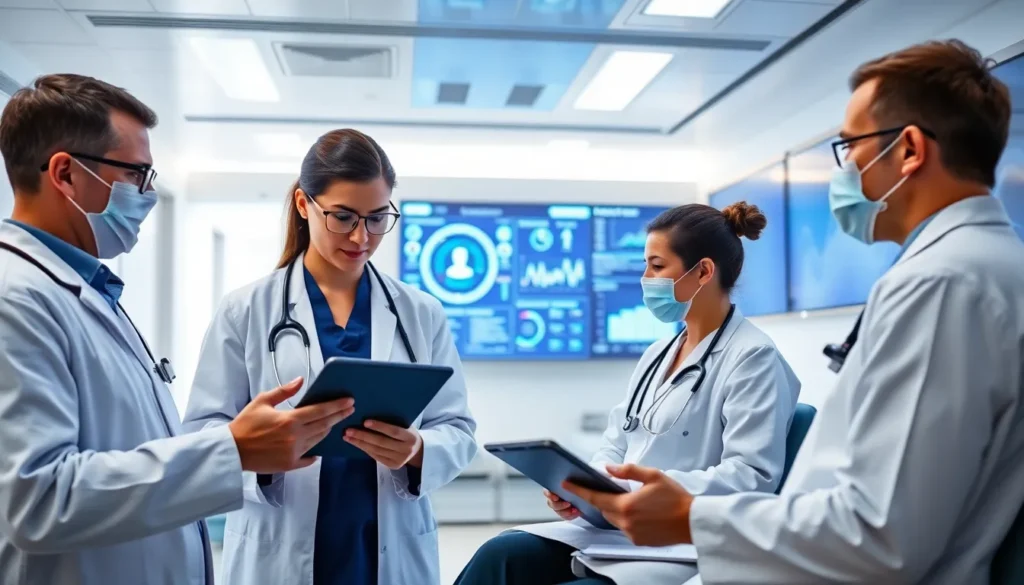
Today healthcare is changing rapidly in the digital world. With the help of new digital tools, doctors and hospitals are providing better care.
Some important trends:
- Artificial intelligence Helps in treatment planning and diagnosis.
- Remote patient monitoring can send their health data to the doctor through wearable device.
- Telemedicine platforms can consult a doctor from the doorstep which saves both time and travel.
- Health informatics systems Smart systems are being developed to make better use of data.
Precision Medicine
Health science no longer provides a single treatment for everyone. Now treatment is given according to the body, genetics and lifestyle of every patient. This makes the treatment fast and effective, and the side effects are also less.
Environmental Health Focus
Now people have started to understand how much impact our environment (such as air, water, chemicals, climate change) has on health. That is why Environmental Health Science has become important. The National Institute of Environmental Health Sciences (NIEHS) does research on how air quality, pollution and chemicals are affecting people’s health in day today life.
Building a Successful Career in Health Science
Gaining Practical Experience
Not just theory, practical experience is also important for a health science career. You can get this experience by:
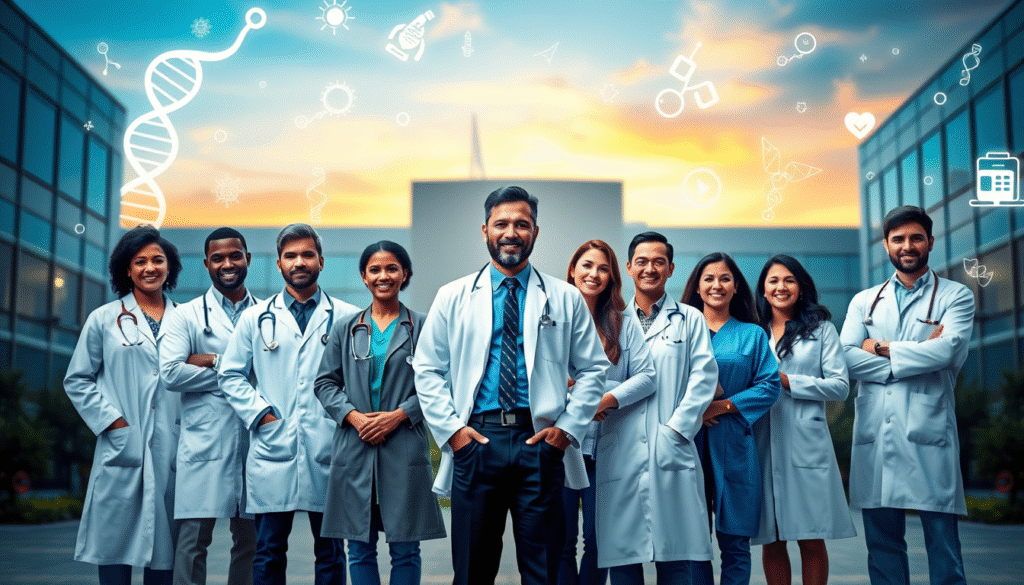
- Internships Working in a hospital, research lab or public health NGOs
- Volunteer work Helping with free health camps, awareness drives
- Work shadowing Observing and seeking work with a health professional
- Research projects Doing scientific research or collecting data
ClinicalTrials.gov is a large database where you can view and participate in clinical research projects.
Professional Development
People who are successful in the health science field are constantly learning new things:
- Staying current up to date with health research and new technology
- Pursuing certifications getting certifications in their field
- Networking with other health professionals networking with other professionals
- Attending conferences and workshops to understand new trends
The Global Health: Science and Practice journal publishes health programs and their results around the world which keeps professionals updated.
Making a Difference
Health science is a field in which you can do something really good for the society. Whether you treat patients directly, do research, make health-related policies or educate people, every role has a strong purpose. Health science professionals get peace of mind that their work is making people’s lives better and improving their health.
The Indian Journal of Medical Research is an international level research journal, whose impact factor is 2.5. It publishes health and medical research which is useful for people of the whole world along with India.
This field is continually growing as new technologies emerge new diseases pose challenges and new ways to understand factors that impact health. Health science is a rewarding career option for people who are interested in science want to help others and make a positive impact on society. It gives you the chance to work in new areas and many options for growing in the future.
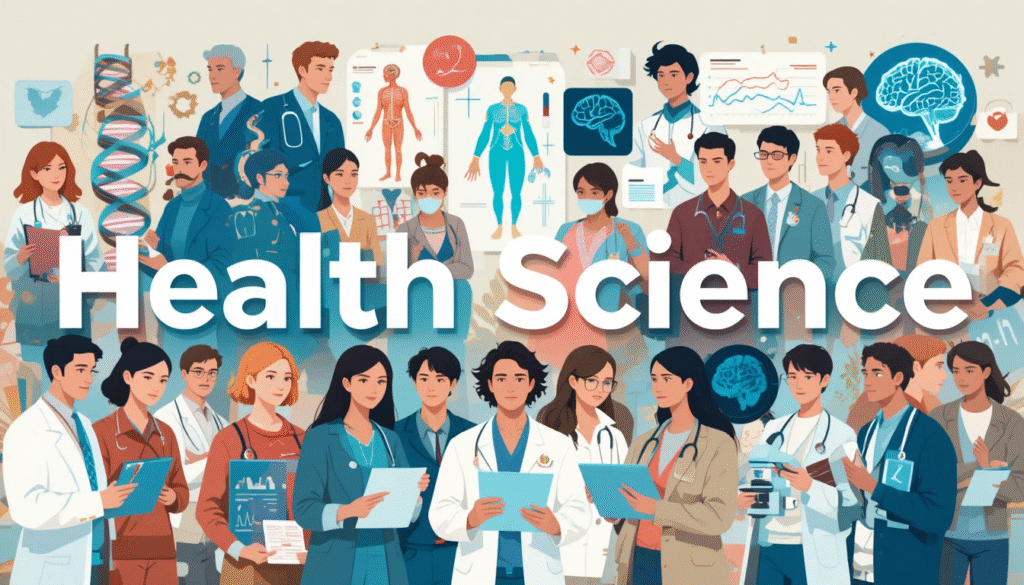
External Linking Sources:
- National Library of Medicine
- PubMed
- Journal of Medical Internet Research
- World Health Organization Data
- National Institutes of Health
- CDC Health Literacy Resources
- Indian Council of Medical Research
- Rural Health Education Foundation
- Global Health: Science and Practice
- ClinicalTrials.gov
Testimonials:
(Sarah M) Health Informatics Specialist:
“My health science degree has given me career options I never thought possible. I started in lab research but now I’m in health informatics where I help hospitals improve patient care by managing patient data. This field is very flexible.”
(Dr. Michael Chen) Community Health Director:
“After completing a Bachelor’s in Health Science I completed a Master’s in Public Health. Now I work with communities to create disease prevention programs. Every day I feel like I am really making a difference in people’s lifes.”
(Jennifer Torres) Healthcare Administrator:
“The interdisciplinary nature (multi-subject knowledge) of health science made me perfect in healthcare administration. I use biology, psychology and business to help run the hospital efficiently while maintaining the quality of patient care.”
Conclusion
Health science is one of the most important and fast-growing fields of today. This field is best suited for people who want to make people’s lives better by working in the health field. Whether you want to fight infectious diseases, develop new medicines or treatments or improve healthcare delivery using modern technology health science professionals work at every level to make the world healthier.
There are many career options in this field, from direct patient care to clinical research, public health policy, healthcare technology and even new areas such as health informatics and telemedicine. Job growth is strong in every area, salaries are good and most important you feel every day that you are making a positive change in someone’s life.
In the times to come as artificial intelligence, precision medicine and digital health technology advance the role of health science professionals will become even more important. These people will play a lead role in shaping the future healthcare system and will ensure that every person gets quality healthcare regardless of their background or country.
FAQ’s
1. What is the study of health science?
Health science is the study of how to improve and maintain human health through research, technology, and healthcare practices. It combines biology, medicine, and social sciences to understand health and disease.
2. What is a job in health science?
A job in health science could be a clinical researcher, public health worker, or healthcare administrator. These roles focus on preventing illness, promoting health, and improving patient care systems.
3. Is health science in high demand?
Yes, health science careers are in high demand due to an aging population and growing healthcare needs. Jobs in this field are expected to grow faster than average.
4. Is health science a good major?
Health science is a good major if you’re interested in healthcare and want flexible career options. It prepares you for both direct patient care and behind-the-scenes roles.
5. What job pays the most with a health science degree?
Physician assistants or healthcare administrators often earn the most with a health science degree. Their salaries can exceed $100,000 annually with experience and advanced credentials.


